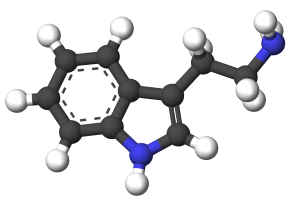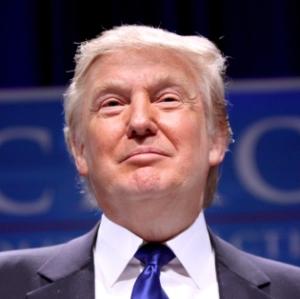A South Carolina deputy gets in trouble for his relationship choices, a former small-town Pennsylvania police chief's heroin habit gets him in trouble, and more.
Iowa's Democratic attorney general calls for legalizing fentanyl test strips, GOP senators file a bill to go after drug cartel "spotters," and more.
Signature-gatherers are criss-crossing the Cowboy State for a pair of marijuana initiatives, the DEA uncharacteristically backs off from some new prohibitions, and more.
Senate Majority Leader Schumer's marijuana legalization bill gets two new cosponsors and a hearing tomorrow, a Cannabis Resource Center to promote equity in the industry launches in New York, and more.
The House approves a medical marijuana research bill, Switzerland and Zimbabwe open up to medicinal cannabis, and more.
A South Carolina deputy gets in trouble for his relationship choices, a former small-town Pennsylvania police chief's heroin habit gets him in trouble, and more.
In Walterboro,
South Carolina, a former Colleton County sheriff's deputy has resigned after an internal investigation found that he had been in a sexual relationship with "a known drug dealer/user" for the past year. Former Deputy William Janecki, who supervised the department's narcotics team, allegedly rented motel rooms for her and would overlook drugs in her possession during traffic stops with other deputies, as well as letting her know when warrants for her arrest were filed. Janecki has not yet been charged with anything, but the internal investigation has now been turned over to the State Law Enforcement Division, which will determine if any criminal charges are to be filed.
In Elizabeth, Pennsylvania, the former Elizabeth Borough police chief was indicted on federal charges last Wednesday for stealing heroin from the evidence locker. Former Chief Timothy Butler stole heroin evidence and was using it himself for nearly a year-and-a-half. He had already pleaded guilty to state charges for the same offense back in 2019 and skated with 45 months of probation. The feds have now charged him with one count of theft of government property. He was a member of a federal drug task force at the time and the drugs he stole were considered federal seized property.
In Tallahassee, Florida, a former Gadsden County sheriff's deputy was sentenced Tuesday to 10 months in federal prison for lying to a federal official about aiding a drug trafficker in 2018 and 2019 after he plea-bargained down from six charges, including unlawful use of a communication device or facilitate possession with intent to distribute a controlled substance; and intentionally attempting to possess a controlled substance, in this case cocaine. Joseph Barnes, 54, was also linked to a dog-fighting ring but was never charged for that. He went down after an investigation by the Organized Crime Drug Enforcement Task Force, which was told that Barnes would help "large-scale" traffickers by, for example, removing covertly installed tracking devices from their vehicles. An informant then asked Barnes to remove any tracking devices from his vehicle, which he did with FBI agents watching. He also provided expertise on how to defeat drug dogs. When he was questioned by the FBI, he lied about it, and that is what he is going to prison for.
back to top
Iowa's Democratic attorney general calls for legalizing fentanyl test strips, GOP senators file a bill to go after drug cartel "spotters," and more.

The Rio Grande River marks the US-Mexico border in this remote region of Texas. Can you spot any spotters? (Pixabay)
GOP Senators File Bill to Target Cartel Spotters. Sen. Joni Ernst (R-IA) and cosponsors Sens. John Cornyn (R-TX), Thom Tillis (R-NC) and James Lankford (R-OK) have filed the Transnational Criminal Organization Illicit Spotter Prevention and Elimination Act, which "increases penalties for those who aid cartels in illegal activity by transmitting information about the positions of Border Patrol or destroying Border Patrol communication devices." The bill would stiffen penalties on spotters by increasing fines and imposing a maximum prison term of 10 years on those convicted of helping cartels.
Harm Reduction
Iowa Attorney General Calls for Legalizing Fentanyl Test Strips. Faced with rising drug overdose deaths in the state, Attorney General Tom Miller (D) said Thursday he wants to see legislation introduced next year to legalize fentanyl test strips. He also said he wants to expand access to the overdose reversal drug naloxone. "There's no one thing that's going to solve this problem, but the pieces of different solutions are going to really, really make the difference," Miller said. Miller's remarks came a week after Gov. Kim Reynolds (R) held a news conference about rising fentanyl overdoses and offered up a public messaging campaign aimed at younger Iowans. Iowa saw 470 drug overdose deaths last year, up from 419 in 2020 and 350 in 2019.
Psychedelics
Colorado Psychedelic Legalization Psilocybin Therapy Initiative Qualifies for November Ballot. The Natural Medicine Health Act has qualified for the November ballot. The Natural Medicine Colorado campaign, backed by the national New Approach PAC, turned in about 100,000 more raw signatures than needed to qualify after a short, three-month signature-gathering campaign. The initiative would legalize possession of certain psychedelics, establish a therapeutic model for supervised psilocybin treatment and provide a pathway for record sealing for prior convictions. There are no explicit possession limits for natural psychedelics, including psilocybin, ibogaine, mescaline (not derived from peyote), DMT and psilocyn. There is no provision for recreational sales. A second psychedelic legalization initiative, sponsored by Decriminalize Nature Colorado, that would simply allow people 21 and over to possess, cultivate, gift and deliver psilocybin, psilocyn, ibogaine, mescaline and DMT is still in the signature-gathering phase.
International
Singapore Hangs Drug Offender, Fifth Execution in Four Months. Singapore authorities executed Nazeri bin Lajim for heroin trafficking on Friday. It was the fifth execution in less than four months, all of drug offenders. "Five people have been hanged this year in Singapore, in a period of less than four months. This relentless wave of hangings must stop immediately. The use of the death penalty in Singapore, including as mandatory punishment for drug-related offences, violates international human rights law and standards," Amnesty International's death penalty expert Chiara Sangorgio said. "Everyone executed in Singapore in 2022 has been sentenced to the mandatory death penalty for drug-related offenses. Rather than having a unique deterrent effect on crime, these executions only show the utter disregard the Singaporean authorities have for human rights and the right to life. We call on governments, the United Nations Office on Drugs and Crime, and the International Narcotics Control Board to increase pressure on Singapore so that international safeguards on the death penalty are respected and drug control policies are rooted in the promotion and protection of human rights. Singapore's highly punitive approach does neither."
back to top
Signature gatherers are criss-crossing the Cowboy State for a pair of marijuana initiatives, the US and India sign a joint agreement on cooperating against the drug trade, and more.

tryptamine molecule (Creative Commons)
Wyoming Marijuana Legalization Initiative Campaign Signature-Gathering Drive Chugging Right Along. Organizers of a pair of marijuana initiatives, the Wyoming Patient Cannabis Act and the Wyoming Cannabis Amendments, are at the midpoint of an 18-month-long signature-gathering window and already have about 17,000 raw voter signatures to qualify for the 2024 ballot. They need 41,776 valid voter signatures to make the ballot. One initiative would legalize medical marijuana; the other would remove criminal penalties for possessing or using marijuana.
Psychedelics
DEA Reverses Course, Will Not Ban Five New Psychedelics. Back in January, the DEA announced that it was moving to place five new psychedelics, all tryptamines, on Schedule I of the Controlled Substances Act. Schedule I is reserved for substances with a high potential for abuse and no currently accepted medical use. But there was significant public pushback on the proposed role, including at a DEA public hearing where researchers and advocates made the case for not regulating the substances. Last Friday, DEA announced it had withdrawn the potential rule. The five new psychedelics are 4-Hydroxy-N,N-diisopropyltryptamine (4-OH-DiPT), 5-Methoxy-alphamethyltryptamine (5-MeO-AMT), N-Isopropyl-5-Methoxy-N-Methyltryptamine (5-MeO-MiPT), N,N-Diethyl-5-methoxytryptamine (5-MeO-DET), and N,N-Diisopropyltryptamine (DiPT).
Foreign Policy
US, India Ink Agreement on Fighting Drug Traffic. The State Department announced last Friday that India and the United States have signed an Amended Letter of Agreement (ALOA) in the field of narcotics control and law enforcement cooperation. The signing took place during the third meeting of the India-US Counternarcotics Working Group (CNWG) held in New Delhi on July 7-8. "Representatives from relevant agencies responsible for law enforcement, policy formulation, drug demand reduction, and other drug-related matters, participated in the deliberations on wide-ranging issues related to drug demand, narcotics trafficking, regulatory and control efforts, and cooperation on enforcement and criminal investigations," the State Department said. Both countries agreed to increase coordination and information-sharing on the drug trade, as well as fighting unregulated chemicals and pharmaceuticals being diverted into the black market. They also agreed to include drug demand reduction topics in the working group.
International
Colombia's ELN Hints at Peace Talks with Incoming President. After the FARC laid down its arms in 2016 as part of an agreement with the Colombian government, the largest remaining leftist rebel group in the countryis the National Liberation Army (ELN). Now, ELN leader Eliécer Erlinto Chamorro says that the group is interested in reaching a peace deal with leftist incoming President Gustavo Petro. "We hear voices from the new government about a different policy against drug trafficking: 'the war on drug trafficking must be ended', for being a policy that did not produce positive results. We agree, but it is not enough," he explained. "The new government says it is interested in peace in Colombia, the ELN too. We have listened to their messages and we are in the best disposition to resume talks to fill peace, with contents of social justice and democracy," the revolutionary leader said. "It is about ending drug trafficking once and for all. To build that solution, the country can count on us," he added. The ELN is one of numerous armed actors on the left and right that have financed their activities through the drug trade.
back to top
Senate Majority Leader Schumer's marijuana legalization bill gets two new cosponsors and a hearing tomorrow, a Cannabis Resource Center to promote equity in the industry launches in New York, and more.
Marijuana PolicySchumer's Marijuana Legalization Bill Gets Two More Cosponsors. The marijuana legalization bill backed by Senate Majority Chuck Schumer (D-NY) and cosponsored by Sens. Cory Booker (D-NJ) and Ron Wyden (D-OR) has picked up two more cosponsors. Assistant Democratic Leader Patty Murray (D-WA) and Sen. Gary Peters (D-MI) have now signed on to the Cannabis Administration and Opportunity Act (CAOA), which was released one week ago today. "It is long past time the federal government catches up to Washington state when it comes to cannabis laws,"Murray said. "This legislation is about justice, strengthening our economy, and bringing the federal government into the 21st century."
But Murray added that she wanted to see Secure and Fair Enforcement (SAFE) Banking Act (S.910) pass: "While the reforms we are pushing for are critical and long overdue -- I remain fully committed to passing SAFE Banking however possible -- including as a standalone bill,"Murray said. "It makes absolutely no sense that legal cannabis businesses are forced to operate entirely in cash, and my bill would bring them into the formal banking system where they belong."
Witnesses Picked for Senate Marijuana Legalization Hearing Tomorrow. Sen. Cory Booker (D-NJ), a cosponsor of the Cannabis Administration and Opportunity Act (CAOA), will chair a meeting of the Judiciary Subcommittee on Criminal Justice and Counterterrorism Friday on "Decriminalizing Cannabis at the Federal Level: Necessary Steps to Address Past Harms," and the witness list is now set. The witnesses on the majority side are Malik Burnett, a pro-legalization physicians who is now medical director of harm reduction services at the Maryland Department of Health; former federal marijuana prisoner Weldon Angelos, who was pardoned by then-President Trump and now advocates for clemency for federal marijuana prisoners via his nonprofit The Weldon Project; and Annapolis Police Chief Edward Jackson, a member of the Law Enforcement Action Partnership (LEAP). The minority witnesses are former federal prosecutor Steve Cook, a hardline drug warrior; and former New York Times reporter Alex Berenson, who has become a Fox News regular since penning the broadly criticized and questionably researched book "Tell Your Children: The Truth About Marijuana, Mental Illness, and Violence."
Senate Bill Filed to Allow Marijuana TV, Radio Ads in States Where It is Legal. Sen. Ben Ray Lujan (D-NM) on Tuesday filed the Secure and Fair Enforcement (SAFE) Advertising Act, which would allow marijuana businesses in states where it is legal to advertise their products and services on TV and radio. The bill mirrors an amendment that was included in a recently passed spending bill in the House The bill would block the Federal Communications Commission (FCC) from penalizing TV and radio stations for running such ads as long as "the activities of the cannabis-related legitimate business or service provider were, at the time of the broadcast or other transmission of advertising," were legal in the state, tribe or territory.
New York Marijuana Resource Center Launched. Senate Majority Leader Chuck Schumer (D-NY) joined advocates and community leaders in New York City for the launch of a new marijuana resource center designed to promote equity in the state's marijuana industry. Schumer used the occasion to point out overlaps between the state's push for social justice in the industry and the need to federally legalize marijuana. Just last week, he filed such a legalization bill. "We're trying at the federal level to mimic what New York has done -- not just in legalization and ending criminalization but making sure social justice is an essential part of any legislation," Schumer said at the event, adding that he and colleagues are "making some progress" in building bipartisan buy-in on marijuana reform from "conservative Republicans and libertarians."
back to top
The House approves a medical marijuana research bill, Switzerland and Zimbabwe open up to medicinal cannabis, and more.

The ex-president offered a dark and dreary vision of America as he called for the death penalty for drug dealers. (CC)
. Led by Sen. Cory Booker (D-NY), one of the original cosponsors of the
Cannabis Administration and Opportunity Act, the Senate Judiciary Subcommittee on Crime and Terrorism held a hearing Tuesday on the bill and the broader topic of marijuana legalization. The bill would legalize marijuana by removing it from the Controlled Substances Act, expunge nonviolent marijuana convictions, and impose a federal tax on marijuana sales. Marijuana sales in states that have not legalized medical or recreational marijuana would remain a federal crime. States would still set their own marijuana policies. Sen. Booker said marijuana prohibition had "miserably failed," creating a "festering injustice" of racially disproportionate marijuana law enforcement. But Sen. Tom Cotton (R-AR) opposed the bill, bizarrely arguing that legalization would benefit "gangs and cartels." No vote was taken, and the bill's future remains uncertain.
Medical Marijuana
House Approves Bipartisan Medical Marijuana Research Bill. The House on Tuesday approved HR 8454, the Medical Marijuana and Cannabidiol Research Expansion Act. The bill sponsored by Reps. Earl Blumenauer (D-OR) and Andy Harris (R-MD) passed on a vote of 325-95, exceeding the two-thirds supermajority required for a vote that takes place under a procedure known as suspension of the rules. Under suspension of the rules, no amendments are allowed and debate is limited. The bill passed with unanimous Democratic support, but Republicans were split over it. "This bill makes it easier to do the necessary, rigorous medical research -- just like is done for any other drug that has a claim of efficacy in this country," Harris, who opposes legalization but favors expanded studies, said on the floor. "The American public deserves to know what medical marijuana is useful for because, for anyone with those conditions where it is found to be useful, it could be a godsend -- but for other conditions where the claims won't be found to be valid with rigorous research, it would be found to be ineffective."
Drug Policy
Trump Calls for Death Penalty for Drug Dealers. Former President Donald Trump called Tuesday for the death penalty for drug dealers during a speech that painted a dark portrait of contemporary America. "The penalties should be very, very severe. If you look at countries throughout the world, the ones that don't have a drug problem are ones that institute a very quick trial death penalty sentence for drug 'dealers," Trump said at the America First Policy Institute. "It sounds horrible, doesn't it? But you know what? That's the ones that don't have any problem. It doesnt take 15 years in court. It goes quickly, and you absolutely -- you execute a drug dealer, and you'll save 500 lives," Trump continued. "It's terrible to say, but you take a look at every country in this world that doesn't have a problem with drugs, they have a very strong death penalty for people that sell drugs," he said.
The former president, who is now under investigation for various crimes related to his efforts to overturn the 2020 election results, unironically called for a broad and harsh crackdown on crime, including police cars parked on every corner, giving police greater qualified immunity, "We're living in such a different country for one primary reason: There is no longer respect for the law, and there certainly is no order. Our country is now a cesspool of crime," Trump said, calling for efforts to defeat violence and to "be tough and be nasty and be mean if we have to."
International
Switzerland Fully Legalizes Medical Cannabis and Allows Export. Beginning August 1, Swiss patients will be able to legally obtain medical marijuana with a medical prescription. Until now, patients were forced to seek individual permission from the Federal Office of Public Health. This comes after the Federal Council (the executive branch) amending the Swiss Narcotics Act approved by parliament in March 2021. Although cannabis for medical purposes will be legal next week, the law only allows products containing less than 1% THC, the limit set for the country's hemp industry. The new law also will allow for exports.
Zimbabwe Allows Cannabis Use in Medicines for First Time. The country's Medicines Control Authority has invited licenses cannabis and hemp producers, as well as importers, exporters, manufacturers, and retail pharmacists to apply for licenses to sell hemp-based products for use as medicines. "Unlicensed sellers of cannabis will be prosecuted for selling unapproved" medicines, the authority added. Would-be licensees must provide product samples and allow official inspections. The move is largely driven by the country's search for ways to boost income in its agricultural sector. The Treasury Department estimates the crop has the potential to reach $1.25 billion a year.
back to top



